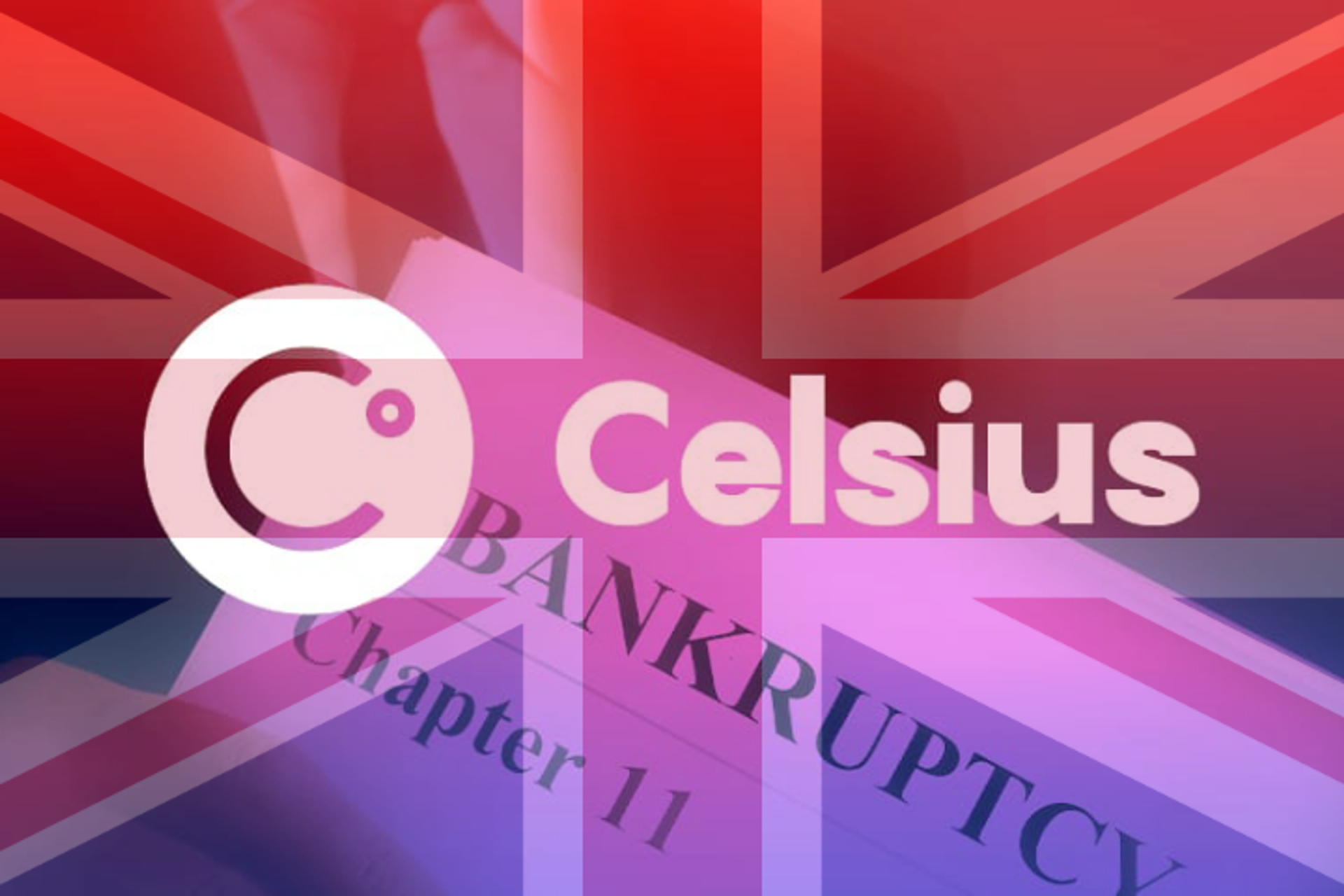

The shocking collapse and bankruptcy of Celsius Network has delivered a harsh one-two punch to UK cryptocurrency investors. Not only have they lost significant funds trapped in the failed lending platform, tax payers may also have been unaware that simply depositing to Celsius in the first place may have triggered a tax disposal - ouch!
Beneficial ownership
For UK customers who provided crypto to Celsius's "Earn" program, a key issue is whether they relinquished beneficial ownership of those assets. Beneficial ownership is a term used to describe who ultimately controls and therefore enjoys the economic benefits of an asset - even if you had legal title over your assets, control is what matters for tax purposes.
While Celsius's terms of service evolved to claim full ownership rights over deposited crypto, UK users argue the terms were contradictory and that they retained beneficial ownership akin to custody arrangements.

The US bankruptcy court, however, issued a crucial January 2023 ruling that Celsius owned the Earn assets outright based on Version 8 of their terms of service released in April 2022. This latest version explicitly stated Celsius acquired "all right and title" to deposited crypto, including "ownership rights." The court focused on interpreting these terms through the lens of US contract and property law. Notably, further rulings also found that for Celsius's Loan product, customer collateral was treated the same as Earn assets and did not qualify as a secured bankruptcy claim due to complex US bankruptcy laws around perfecting security interests.
The rulings and the terms of service changes have caused confusion for UK taxpayers, as many perceived they've gone from being treated as asset owners to becoming unsecured creditors making claims against the chapter 11 bankruptcy.
UK users have pushed back, arguing earlier terms were contradictory and that they retained beneficial ownership akin to custody arrangements. HMRC may not necessarily recognise the US court's determination on ownership given the complex issue of determining beneficial ownership for tax purposes. HMRC have previously highlighted that determining a change in beneficial ownership is crucial when considering whether a disposal has been made, despite the complexity this creates; their consultation on DeFi Lending and Staking made this abundantly clear. Recap, CryptoUK and many other organisations responded to this consultation and proposed a new framework for an equitable tax treatment for decentralised lending and staking. HMRC proposed legislative changes for DeFi lending and staking, but to date changes have been enacted.
The concept of ownership carries different meanings depending on the context. The legal definition used as part of the US chapter 11 bankruptcy rulings, which rely on a specific set of terms of service centred on possession, differ from the concept of beneficial ownership for UK tax purposes. As a result, the timing of disposals for tax purposes is likely to be viewed differently between users and HMRC.

The differing definitions create a complex area of uncertainty for UK taxpayers wishing to accurately file their Celsius tax positions.
The result is UK customers may face divergent tax treatments and obligations depending on deposit dates and which version of the terms is deemed controlling. Accountants warn this raises the spectre of protracted battles with HMRC over beneficial ownership and whether taxable disposals were truly triggered.
Taxpayers are offered little tax protection from overseas bankruptcies. Individuals may find that as a result of waiting for a conclusion to the Celsius bankruptcy, they have previously unreported taxable positions, for better or worse, that will require disclosing to HMRC, depending on their individual circumstances.

At Recap, we estimate there are 85,000 UK customers that got caught up in the Celsius, FTX, BlockFi and Voyager bankruptcies, so far HMRC have not released any tax guidance on the matter.
The crux of the problem, (for us and HMRC), is perhaps determining when Celsius customers disposed of beneficial ownership for tax purposes. Where there have been exchanges prior to the bankruptcy petition date, will these tax disposals cause large capital gains for taxpayers. And if there are losses to capitalise, will they be useful if they can’t be carried back?
Earn customer example:
If there has been an exchange of beneficial ownership for Earn customers of Celsius, then UK customers could be exposed to tax charges based on each deposit to the Celsius platform.
As an example: If a UK customer deposited 5 BTC to Celsius before bankruptcy, HMRC could treat that as a tax disposal in exchange for a 5 BTC contractual right - think of it as you have exchanged 5 BTC for an IOU or right to return your 5 BTC.
If a UK customer purchased the 5 BTC in 2015 at £1000 and then in 2021 the market value of the deposit to Celsius was £50,000, the UK customer would be subject to realising a £49,000 taxable gain!
Loans customer example:
For a Celsius loans customer, they may have exchanged beneficial ownership as soon as they placed collateral.
As an example, if a UK customer placed 5 BTC to Celsius as loan collateral and received 50000 USDC as loan principal. HMRC could treat that as a tax disposal of 5 BTC for a 5 BTC contractual right - think of it as if you have exchanged 5 BTC for an IOU or right to return your 5 BTC. There also is an acquisition of 1000 USDC at market value.
If a UK customer purchased the 5 BTC in 2015 at £1000 and then in 2021 the market value of the collateral deposit to Celsius was £50,000, the UK customer would be subject to realising a £49,000 taxable gain!
Considering that customers of Celsius lost over 70% of their assets through the bankruptcy process, many individuals will not have the necessary assets to draw down on to pay these kinds of tax charges.
Silver lining and further pain
Accountants in the UK seem to have the consensus that a loss can be capitalised for the Celsius bankruptcy situation, however it is likely this will be on the petition date of the chapter 11 bankruptcy 13th July 2022 - so in the 2022/23 UK tax year. Most Celsius customers will have significant losses that will dramatically reduce their tax liabilities, if not now then they can potentially be carried forward for future years.
However, drawing back to the examples above, if you realised a gain in prior tax years, because the UK tax system will not let you carry back a loss, you could have tax due 2021/22, and a massive loss 2022/23. HMRC may demand you pay the bill for 2021/22, regardless of the 2022/23 loss.

Bankruptcy distributions have been paid in February 2024 to most creditors in the form of Bitcoin, Ethereum and Ionic Digital shares. These payments are likely to be treated as directly chargeable for capital gains - and not simply a return of assets.
Some creditors who withdrew assets from Celsius up to 90 days prior to the bankruptcy have faced legal action to pay some of the value back to the estate. Just when you think you got out ahead of the bankruptcy, the Chapter 11 process enables Celsius to clawback payments as a way of preventing insiders from gaming the system. Distributions have been held back to these creditors until a clawback has been settled.
The path ahead
Recap has been working with Andersen LLP and CryptoUK to determine a tax position for Celsius clients, as well as building bankruptcy features natively into our crypto tax software, so you can file your tax loss. Please check out our blog on “How to claim your Celsius tax write off in the UK”, where we explain the tax position we have developed and configured within Recap to help you.



